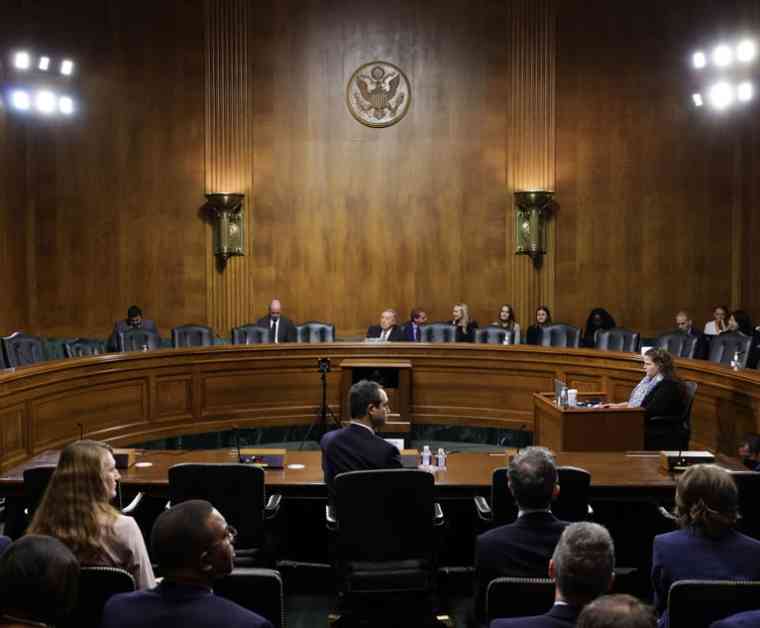It seems that the potential increase in federal judgeships is back on the table after three decades. During a recent Senate Judiciary Committee meeting, Sen. Lindsey Graham highlighted that the last time Congress passed comprehensive legislation to create new judgeships was in 1990. This historical context sets the stage for the current bipartisan bill aimed at adding seats to federal trial courts that are struggling with understaffing issues.
The proposal to expand federal judgeships comes at a time when the caseload for judges has been steadily increasing. With the backlog of cases growing in federal trial courts, there is a pressing need to address the issue of understaffing. By adding more judgeships, the hope is to alleviate some of the burden on the current judges and ensure that cases are processed in a timely manner.
The bipartisan nature of the bill is a promising sign of potential progress in Congress. In a time of political division, it is encouraging to see lawmakers coming together to address a critical issue facing the judiciary. By advancing the bill unanimously in the Senate Judiciary Committee, there is a sense of bipartisan support for the expansion of federal judgeships.
If the bill is passed and new judgeships are created, it could have a significant impact on the efficiency of the federal court system. More judges would mean that cases can be heard and decided more quickly, reducing the backlog and ensuring that justice is served in a timely manner. This would also help to alleviate some of the stress and workload on current judges, allowing them to focus on delivering fair and impartial decisions.
As the bill moves towards the Senate floor for further consideration, it will be interesting to see how lawmakers respond to the proposal. Will they prioritize the need for more federal judgeships to address the growing caseload in federal trial courts? Or will other factors come into play that could impact the outcome of the bill?
Overall, the potential increase in federal judgeships is a development worth following closely. It has the potential to have a lasting impact on the efficiency and effectiveness of the federal court system. By addressing the issue of understaffing and reducing the backlog of cases, the expansion of federal judgeships could improve access to justice for all Americans.















